During a Workout
Sit comfortably and place one hand on your chest and take a deep breath into your hand. Now place your other hand at your stomach's base and take a deep breath. Breathe in slowly through your nose and focus on getting your stomach to push your hand up while your chest remains still. Repeat for six breaths, then combine the chest and belly breaths together. Imagine you're pouring water into a glass. You want the glass to fill up starting from the bottom of your belly (the diaphragm) up to the top of your chest. This opens up your lungs and maximizes your oxygen input to give you better mental clarity and athletic performance.
During Stressful Times
Take a deep, slow inhale through your nose. Hold it in for three seconds, then, placing your top front teeth on your bottom lip, slowly let the air pass through your teeth in a long, passive exhale. This ideally should take at least twice as long as your inhale. At the bottom of the exhale, pause for a moment, take a normal breath and then repeat. Do this at least three times. This exercise lowers your heart rate and calms the body's natural stress response, so it's handy during anxiety-inducing situations.
For a Natural Boost
Make the phone gesture with your right hand. Press your thumb against your right nostril to close it and inhale slowly through your left nostril. Pause for a second. Then release your right nostril and press your pinky against your left nostril to close it. Exhale slowly through your right nostril. Now inhale through your right nostril and repeat by alternating the sequence.
For Rest and Recovery
Lie on your back and inhale until your chest is full. Exhale all the air out forcefully, like you're blowing out a candle. Your abs should feel wrung out. Repeat the process for two minutes. It should feel like a workout and maybe even leave you a little lightheaded and disoriented. But only for a moment. Move your arms to your sides, palms up, and take deep diaphragmatic breaths through your nose. You'll feel sleeply and may even nod off. That's because you've disengaged your body's "fight-or-flight" state, kickstarting recovery.


































